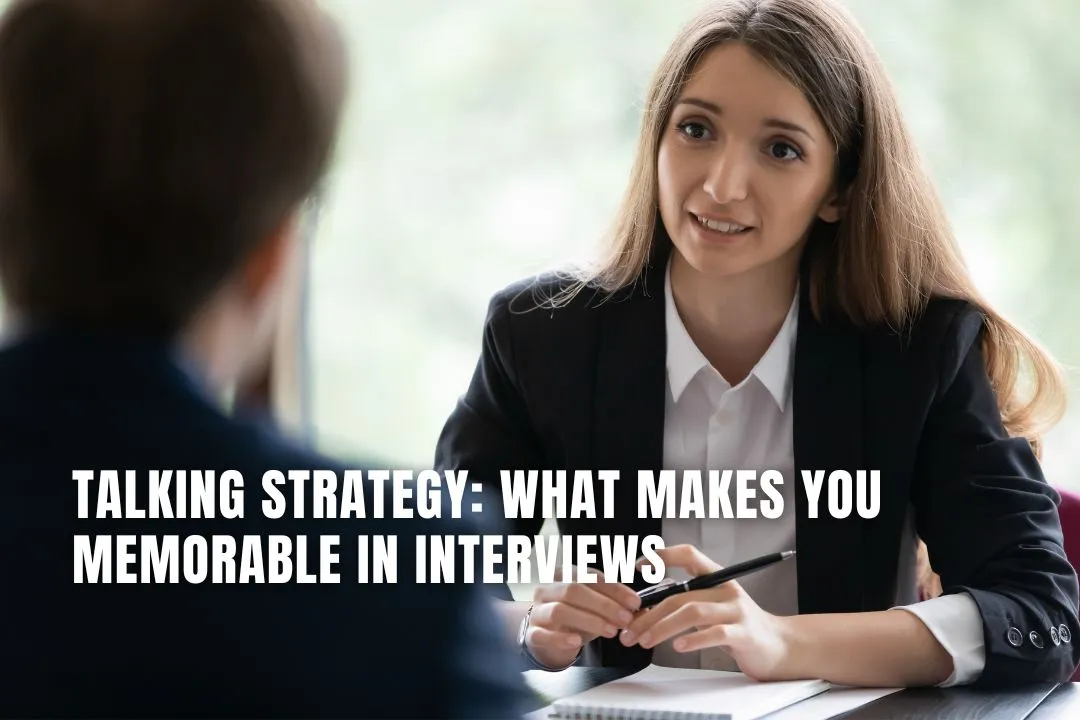
Editorial Disclaimer
This content is published for general information and editorial purposes only. It does not constitute financial, investment, or legal advice, nor should it be relied upon as such. Any mention of companies, platforms, or services does not imply endorsement or recommendation. We are not affiliated with, nor do we accept responsibility for, any third-party entities referenced. Financial markets and company circumstances can change rapidly. Readers should perform their own independent research and seek professional advice before making any financial or investment decisions.
Landing an interview is an achievement, but standing out amidst a sea of candidates is what really matters. Being memorable in a job interview doesn’t mean having appropriate experience or answering all the questions correctly. It means showcasing your values, skills, and personality in a way that leaves a lasting impression.
Whether you’re just starting out in your career or looking to switch jobs, read this guide to stand out during job interviews.
When a recruiter asks about your past experience and what makes you a suitable candidate for this role, clear communication is key. Instead of going on a 30-minute-long monologue, you need to structure your response in a concise and easy-to-follow way. The STAR method is one of the most common and impactful ways to answer interview questions.
It stands for:
By using the STAR method, you can turn generic answers into dynamic, story-like responses. Moreover, your answers will appear more natural and compelling. This will provide the interviewer with a comprehensive understanding of your skills and abilities, helping them remember you long after the interview.
For further guidance, read interview questions guides offered by Intuit or other reputable sources.
When the interviewer asks if you have any questions, it is your time to shine. Instead of asking generic questions like “What is the company’s culture like?” ask thoughtful, forward-thinking questions about your role and its impact.
Here are some examples:
Such questions will demonstrate your commitment to the role and show that you possess active listening skills.
Another way to make your interview a two-way exchange is to bring up recent company news or updates. You can reference a recent initiative or partnership and ask specific questions about what it entails. This will show the recruiter that you’re not on autopilot.
Most people believe that employers only care about a candidate’s professional skills. This is not entirely true. Remember that well-rounded candidates stand out. They might participate in volunteer activities, play sports, pursue creative arts, or travel.
Having interests and hobbies outside of work will make you appear more relatable and, more importantly, memorable. A recruiter is more likely to remember a candidate who showed passion for marathon running than someone who has the exact required degree for the role.
Don’t be afraid to discuss your interests and passions. This is especially useful for those who play sports, as it enhances skills such as leadership, teamwork, and creativity.
Being polite and saying “please” or “thank you” might seem like a no-brainer, but you would be surprised to know how many candidates overlook this, primarily due to nervousness.
Body language directly conveys your confidence and professionalism. Maintain eye contact, sit up straight, and use hand gestures to naturally emphasise your points. Avoid fidgeting or slouching, and keep a natural facial expression throughout the interview.
Be mindful of your voice. Speak clearly and avoid rushing through answers. Remember that it is natural to take a pause when thinking of a response.